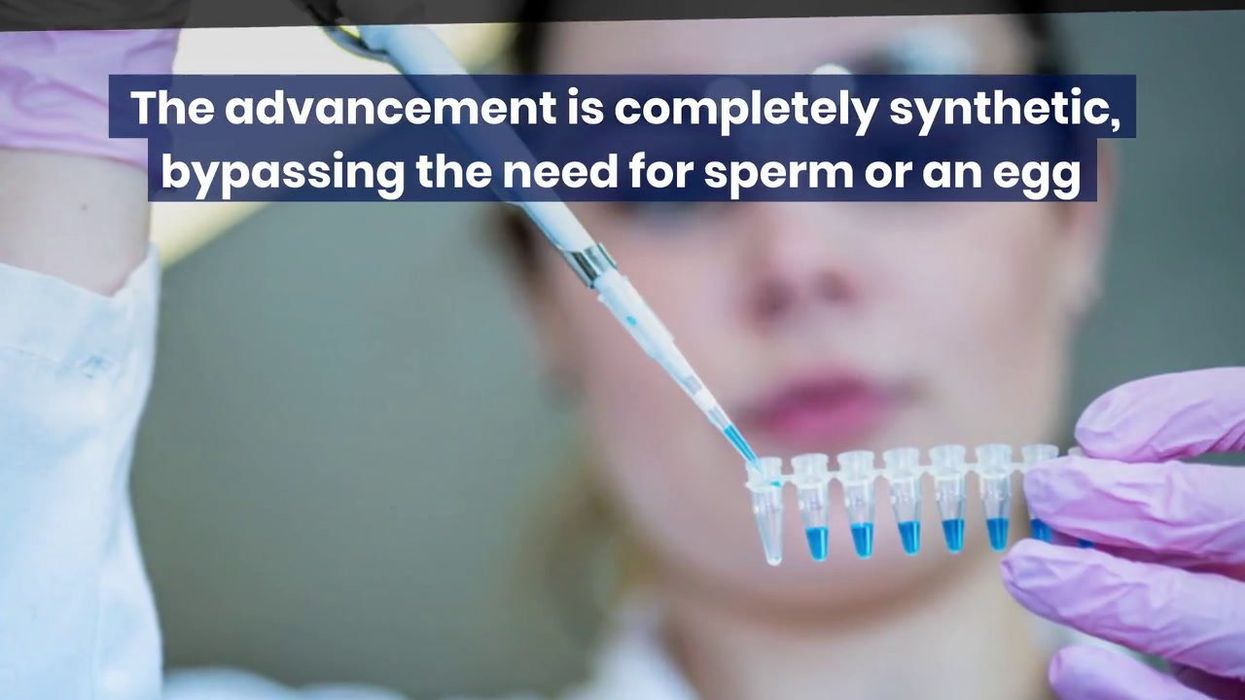Science & Tech
Becca Monaghan
Jun 19, 2023
Scientists Create Synthetic Human Embryos With Stem Cells
content.jwplatform.com
Scientists have created a model human embryo to study the first weeks of life, complete with a heartbeat and traces of blood.
The synthetic embryo was created with human stem cells and did not require sperm, eggs or fertilisation. It mimics the structure that occurs during the first month of pregnancy. Yet, scientists ensured it was designed to not form a foetus.
Researchers involved in the extraordinary project discovered that the model had early stages of developing a brain and beating heart cells, which generally develop after 23 days in a human embryo.
It was achieved through embryonic stem cells, which are 'blank' cells from a human embryo. Scientists grew the model in a lab before transferring it to a rotating bottle to act as an artificial uterus, The Guardian reported.
Sign up for our free Indy100 weekly newsletter
Scientists hope the findings will help them understand more about the impact of genetic disorders and miscarriage.
Dr Jitesh Neupane, of the University of Cambridge’s Gurdon Institute, told the publication: "I randomly took my plate under the microscope and when I saw the [heartbeat] for the first time I was scared, honestly. I had to look down and look back again.
"It was overwhelming for me. People get emotional when you see the heartbeat."
He went on to emphasise that the model is "neither embryos nor are [they] trying to make embryos actually."
"They are just models that could be used to look into specific aspects of human development," he continued.
The findings are yet to be published in either a preprint or a journal paper.
Have your say in our news democracy. Click the upvote icon at the top of the page to help raise this article through the indy100 rankings.
Top 100
The Conversation (0)














